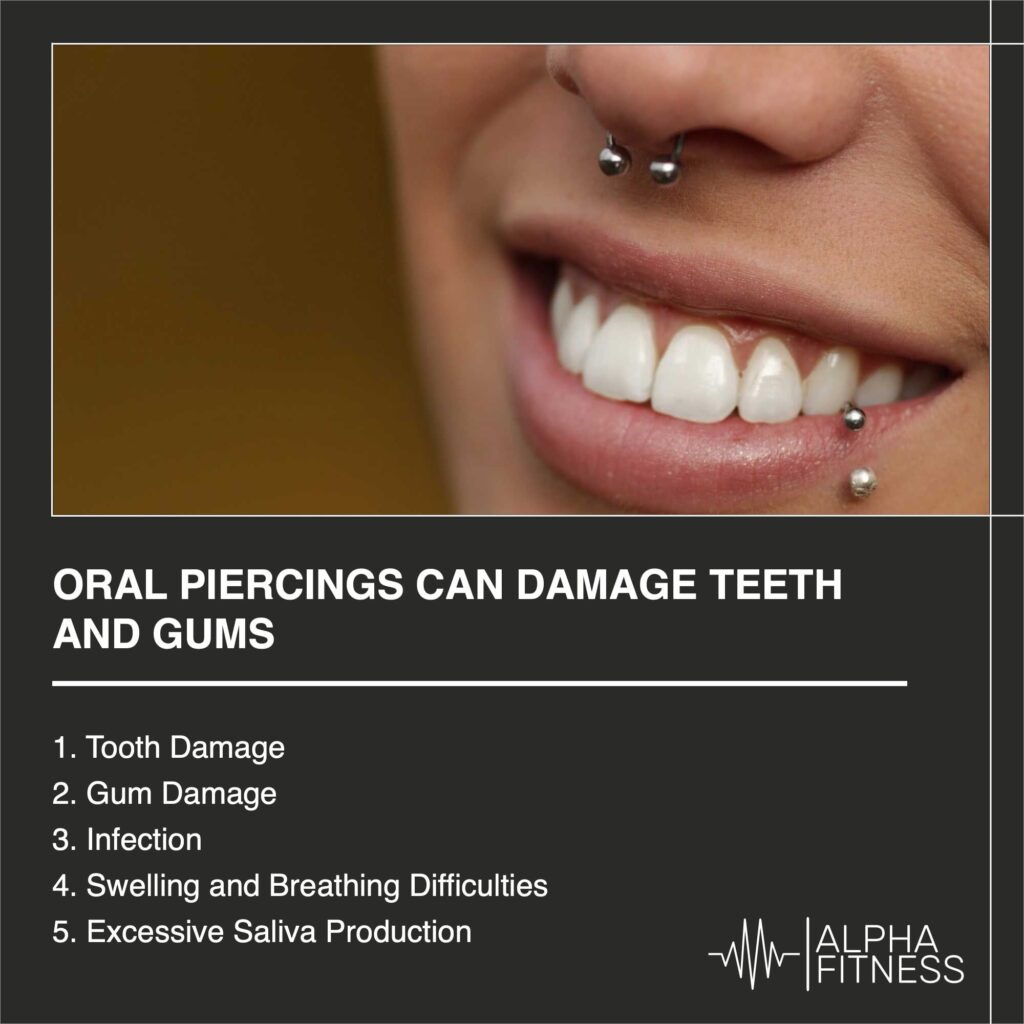
Yes, oral piercings, such as tongue, lip, or cheek piercings, can pose various risks and have the potential to damage teeth and gums. Here are some of the reasons why oral piercings can be harmful:
Tooth Damage: Oral piercings can come into contact with teeth, particularly when speaking, eating, or playing with the piercing in your mouth. This contact can lead to chipped, cracked, or fractured teeth.
Gum Damage: The jewelry in oral piercings can rub against the gums, causing irritation, recession, and potential damage. This can lead to gum infections, inflammation, and gum disease.
Infection: The mouth is home to a variety of bacteria, which can easily enter the piercing site, leading to infections and complications.
Swelling and Breathing Difficulties: After getting an oral piercing, you may experience swelling, which can make it difficult to speak and eat. In some cases, severe swelling can even lead to breathing difficulties.
Excessive Saliva Production: Some people experience increased saliva production due to the presence of a piercing, which can be uncomfortable and inconvenient.
Allergic Reactions: Allergic reactions to the metal in the piercing jewelry can occur, leading to inflammation and discomfort.
Speech Impediments: Oral piercings can alter the way you speak, making it harder to articulate certain sounds.
Aspiration Risk: In some cases, the jewelry can come loose or be accidentally swallowed or inhaled, posing a choking or aspiration risk.
To minimize the risks associated with oral piercings, it’s essential to:
Choose a reputable and experienced piercer who follows proper hygiene and safety protocols.
Opt for high-quality, hypoallergenic jewelry to reduce the risk of allergic reactions.
Be diligent about oral hygiene to prevent infections and gum problems. Rinse your mouth with an antiseptic mouthwash regularly.
Avoid playing with or twisting the piercing to reduce contact with teeth and gums.
Consider the potential consequences of the piercing and whether the aesthetic benefits outweigh the risks.
Below is a list of useful links:
- Get a healthy gum to regular use of mouthwash
- How to get rid of cavities?
- Is the use of cloves can reduce bad breath?
- Benefits of saltwater for healing root infections
- Consume calcium can strong enamel
If you experience any issues with an oral piercing, such as pain, swelling, infection, or damage to teeth and gums, it’s important to seek prompt medical or dental attention. In some cases, removing the piercing may be necessary to address these problems effectively.




I enjoy your website, obviously, but you should check the spelling on a number of your posts. A number of them have numerous spelling errors, which makes it difficult for me to tell the truth, but I will definitely return.